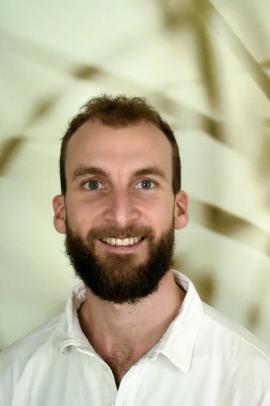Mindful Academy Solterreno MBSR curriculum 2019
The intention of this curriculum is to map out a suitable pathway to help relieve suffering and increase a sense of well-being for anyone, particularly anyone suffering from the effects of stress and health challenges.
This is an 8 week course comprising of an Orientation Session, 8 weekly sessions and a Retreat day, totalling 31 hours of teacher lead instruction, as detailed in the diagram below.
This is based on the MBSR curriculum as defined by UMass CFM in this document: https://www.umassmed.edu/globalassets/center-for-mindfulness/documents/mbsr-curriculum-guide-2017.pdf
Structure of the MBSR course

Session 1:
What is Mindfulness?
There is more right with us than wrong
Theme and learning focus -
From a mindfulness perspective, as long as you are breathing, there is more right with you than wrong, and so whatever the challenge or difficulty we face, this is workable. Cultivating mindfulness, which can be defined as ‘the awareness that arises from paying attention, on purpose, in the present moment, non judgementally’ (Jon Kabat-Zinn, 1990/2013), is key in this approach since the present moment is the only moment each of us has for growing, transforming, learning and loving. When we practice mindfulness, this can help us to reduce the negative physiological and psychological effects of stress reactivity, and to develop effective ways of responding positively and proactively to stressful experiences in our lives.
In this session we will learn that when we are in ‘automatic pilot’ it is easy to drift unawares into a busy ‘doing’ mode and the ruminative thought patterns that can create additional stress in our lives. This continual ‘doing’ mode can rob us of our potential for really living our lives moment by moment. We learn how we can transform this experience by intentionally paying attention in particular ways. Through the experiential activities of mindful eating, breathing and body scan meditation, we practice waking up to automatic pilot by paying attention to the sensations in the body, mind, emotions and to aspects of our everyday experiences, with a beginner’s mind, curiosity, openness, acceptance and kindness, as best we can.
“In the beginner’s mind there are many possibilities, in the expert’s mind there are few”
Shunryu Suzuki
Session 2:
Perception and creative responding:
How we perceive the world and ourselves
Theme and learning focus -
How we see (or don’t see) things has a major influence on how we will react or respond to them. In this session, we explore how we perceive the world and the relationship between our interpretation of something and what is actually there. Well-being seems to come as much from the approach we bring to our experiences, as from what's actually happening and what we decide to do next. It is not so much the stressors but our perception of those stressors, and how we handle them, that influences the short- and long-term effects on our minds, bodies and overall health. If we can cultivate healthy approaches to our experiences, we will probably feel better, no matter what is going on. We may have no control over things that happen in life, but we do have some say in our attitudes.
The attitudes that we explore in this session are like seeds and just as seeds can flower when tended, these attitudes can grow - if we nurture them. Through the regular practice of the body scan and awareness of breath meditations, we hold a key to transformation; in the gentle practising of kindness to whatever appears in our present moment experience. However we are feeling, the very fact of knowing and being willing to experience it, even for just a moment, makes the situation workable. We do not have to struggle, force or badger ourselves to become aware, or judge ourselves for having wandered off into automatic pilot and our habitual ways of reacting, instead we practice learning how to just notice and to come back. This process of noticing, and choosing to come back again and again, is the heart of mindfulness practice.
Use the breath as an anchor to tether your attention to the present moment. Your thinking mind will drift here and there, depending on the currents and winds moving in the mind until, at some point, the anchor line grows taut and brings you back.
Jon Kabat-Zinn
Session 3:
Mindfulness of the Breath and the Body in Movement:
There is both pleasure and power in being present.
Theme and learning focus -
There is both pleasure and power in being present. Our journey of discovery continues as we attend to, and investigate, our experience of how things are in the body and the mind in the present moment. Through an interrelated series of mindfulness practices of movement, sitting and walking, we learn to become familiar with our patterns of perception, reactivity and responding. With this awareness, we may discover the joy of being, the value of appreciating life as it is, and the power in choosing how to be with our present moment experience.
In the previous sessions, we began exploring ways to bring mindful awareness of our everyday moments and maybe we are discovering the extraordinary in the ordinary. We are also continuing to nurture the attitudes that support us through life including its inevitable difficulties and challenges. In this session, we explore the challenges and insights encountered in mindful movement, sitting and walking practices and as we are integrating mindfulness into everyday life. When we practice mindfulness this can help us to tune into our bodies with a gentle curiosity and kindly interest. From this place of mindful awareness, possibilities open up for choosing helpful responses that support our wellbeing in the present moment and beyond.
The present is the only time that any of us have to be alive - to know anything - to perceive - to learn - to act - to change - to heal.
Jon Kabat-Zinn
Session 4:
Learning about our Patterns of Stress Reactivity:
Wherever you go, there you are.
Theme and learning focus -
Awareness is our first step in choosing how to respond skillfully to stress. When we practice bringing mindfulness to all aspects of our present moment experience, we are learning not to react right away - to the pleasant, unpleasant and neutral parts. Mindful awareness invites us to pay attention to our perceptions and how these shape our choices and actions, thus shining the light of awareness on the shadow of stress. By cultivating a kindly interest in these aspects of our experience, with openness and acceptance, this can help us to develop effective ways of responding positively and proactively to stressful, situations, experiences and pain.
In this session, we continue to explore how our perception of difficulties or pain shapes our experience of stress. We explore how mindfulness supports our inquiry into our habitual patterns of stress reactivity and to understand these as part of our natural human condition. We explore how cultivating curiosity and openness can help us to learn new ways to relate to both internal and external stressors. We learn how to soften the resistance to experience, to reduce suffering and to recover more quickly from stressful moments. What we practice grows stronger. The more we practice directing and redirecting our attention, with kindness and openness, we are expanding our field of awareness and cultivating a more flexible attentional capacity, that opens up the possibility of greater choice in our next actions.
The overall tenor of mindfulness practice is gentle, appreciative and nurturing. Another way to think of it is heartfulness.
Jon Kabat-Zinn
Session 5:
Working with Stress:
Mindful Responding instead of Reacting
Theme and learning focus -
We have reached the mid-way point of our course. We reflect on how mindful awareness is growing our capacity to adapt to our everyday moments in more skilful ways; ways that support our health and well-being. In this session, we continue to practice bringing a close and caring attention to our automatic and habitual stress reactions, without trying to change them. As we practice and describe our experiences, we can also recognise and honour how these patterns may have been protective for us and supported our survival, in the past. We also explore how they may now be counter-evolutionary and limiting, even self-destructive. We learn how certain thoughts and emotions can trigger and amplify our stress reactivity and how this effects our health and well-being. We remember that what we practice grows stronger.
As we practice open awareness meditation, we are strengthening our capacity to acknowledge and be with all aspects of our present moment experience, without expectation or preference. We observe how emotions and thoughts come and go, just as the breath and body sensations come and go. We practice relating to thoughts and emotions as aspects of our experience, and we listen to their messages with renewed clarity and respect. As we replace our automatic reactivity with mindful responding, we are learning how to sustain a calm and friendly attention in the face of stress. We experience how this can help to quicken our recovery from challenging situations when they arise in our lives. This capacity to recover more quickly helps to reduce the ‘wear and tear’ of the negative stress cycle on our health and wellness.
“We cannot solve our problems with the same thinking we used when we created them”
Albert Einstein
Session 6:
Stressful Communications:
Interpersonal Mindfulness
Theme and learning focus -
Our relationships with others may be the most important part of our lives, and our most stressful and difficult. They also tend to be negatively affected when we are stressed. Over the history of our lives, we develop automatic patterns of relating to ourselves and others. When we apply mindful awareness to the area of communication, we invite attention to these patterns and to the barriers to exploring how we think and behave with others and ourselves. In this session we explore how interpersonal mindfulness can support us to remain balanced in relationships and to respond to the strong expectations of others, ourselves and our automatic habits of expressing our emotions.
We will explore awareness of emotions and gain clarity in knowing and expressing our feelings. We practice allowing, rather than resisting, our emotional experience. We investigate how we can feel our feelings without becoming overwhelmed by or identifying with them. We will also explore our relationship to ourselves and how we can practice self-kindness and warmth towards our own difficulties and pain; recognising our shared human experience and how taking a curious, open and accepting attitude towards all emotions can support us in seeing things clearly, without ignoring, exaggerating or catastrophising our experience. As we practice applying the skills we are learning in this course to our everyday lives, we are cultivating our natural capacities to be more flexible and to recover more quickly during challenging interpersonal situations. As we grow our awareness of emotions, we may better understand the messages we are sending to others and receiving from others and the barriers to being with ourselves and others in heartfelt and authentic ways.
“Once you can communicate with yourself, you’ll be able to communicate outwardly with more clarity.”
Thich Nhat Hanh
The all day class:
A silent retreat
7.5h’s
The intensive nature of this session is intended to assist the participants in firmly and effectively establishing the use of MBSR skills across multiple situations in their life, while simultaneously preparing them to utilize these methods far beyond the conclusion of the program.
Session 7:
Lifestyle Choices:
How can I best take care of myself?
Theme and learning focus -
As we have seen over the course, mindfulness is the practice of choosing to come back to awareness of the present moment; using the breath and the body as anchors that we can return to, again and again. This takes a certain sort of intention, a deliberate effort and a gentle commitment; to be kind, not to judge or be critical of our experiences. In this session we continue to explore practices that help us to befriend our present moment experience, as best we can. Through the changing conditions of our lives, we practice coming back to the present moment, asking ourselves, ‘what do I need to take care of myself now?” and “how can I be kind to myself?”.
Mindfulness is most effective when it is woven into our daily lives and offers us a broader sense of awareness and presence in each of our moments. This week we reflect on the choices we make in our daily lives that are supportive or nourishing, as well as those that are not so helpful or depleting. As we continue to cultivate present moment awareness, we open up to new possibilities and we grow a certain flexibility in making choices that support. rather than limit, our health and well-being. We learn how the practices can also help us to develop a disposition of generosity so that it may arise more readily, enriching both our own day-to-day lives and the lives of those we meet in our moment to moment interactions.
“You can’t stop the waves, but you can learn to surf”.
Jon Kabat-Zinn
Session 8:
A Mindful Life:
Keeping your Mindfulness Alive
Theme and learning focus -
We’ve reached session 8 of this MBSR course and the eighth week … is the rest of your life! As we move on from this curriculum, we carry on with the curriculum of life that is ever-unfolding, moment by moment. We’ve been inspired by each other and challenged to discover the ways mindful awareness can help us to choose actions that support our health and well-being. Today we honour the end of this course and the beginning of the next steps in your mindful life.
In this session, we reflect on and celebrate our shared and individual experiences in taking the course. We explore what we are taking away and what has been discovered. We will also explore the support systems that may be helpful to continue in our process of integrating the learning from this experience. Maintaining and extending a more mindful and caring way of being requires clear intention, attention, attitude and planning. It can be helpful to link regular mindfulness practice to a personally significant value or positive reason for taking care of yourself. To carry on the momentum into the next months, and years, we ask: “how do I feel differently to the start of the 8-week course?”
“Mindfulness provides a simple but powerful route for getting ourselves unstuck, back in touch with our own wisdom and vitality.
The most important point is to really be yourself and not try to become anything that you are not already….
being in touch with your deepest nature, and letting it flow out of you unimpeded”
Jon Kabat-Zinn
References:
Mindfulness-Based Stress Reduction (MBSR) Authorized Curriculum Guide © 2017
Mindfulness-based stress reduction (MBSR) standards of practice
What defines mindfulness-based programs? The warp and the weft
https://www.bangor.ac.uk/mindfulness/documents/what-defines-mindfulness-based-programs.pdf





















